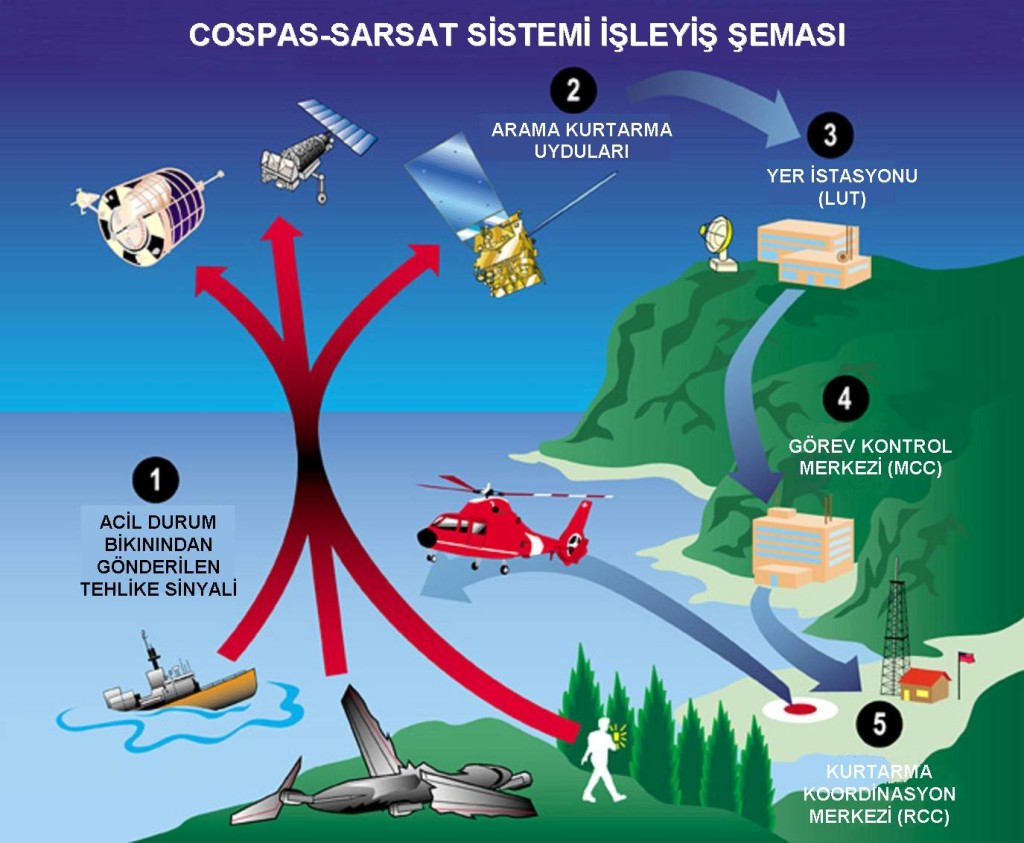Türkiye Provides Satellite-Assisted 24/7 Monitoring of Marine and Air Accidents

Minister of Transport and Infrastructure Abdulkadir Uraloğlu announced that they use the COSPAS-SARSAT satellite-supported search and rescue system in sea and aircraft accidents. The Turkish Main Search and Rescue Coordination Center works with the Coast Guard and Air Force to intervene immediately in accidents.
The system processes signals from air and sea vehicles via satellites in case of danger and aims to reach the victims as quickly as possible. Turkey also provides free service to neighboring countries such as Iran, Iraq and Afghanistan with this system.
The signals sent by the satellites reach the ground station in Ankara Çubuk and are transmitted to rescue centers from there to initiate intervention. In 2009, Turkey became the sixth country in the world to have the MEOSAR system, which uses medium-altitude satellites. In addition, second-generation beacon devices can provide precise location detection up to 100 meters; authorization studies for these devices will be completed in August 2025.
What is the COSPAS-SARSAT System?COSPAS-SARSAT is a satellite system designed to provide alert and position information to assist in search and rescue (SAR) operations by using spacecraft and ground facilities to detect distress beacons operating at 406 Megahertz (MHz). The emergency location and other relevant information is sent to the relevant Search and Rescue authorities by the responsible COSPAS-SARSAT Mission Control Center (MCC). Its goal is to support organizations responsible for Search and Rescue operations at sea, on land or in the air, anywhere in the world.
The COSPAS-SARSAT System sends alerts and location information to Rescue Coordination Centers (RCCs) around the world for beacons broadcasting on 406 MHz.
The COSPAS-SARSAT System consists of:
Emergency radio beacons that send signals in emergency situations (ELTs for use on aircraft, EPIRBs for use on marine vessels, and PLBs for use by individuals),
Devices that receive signals broadcast by emergency radio beacons and are present on satellites located in geostationary and in low-earth orbit,
Ground stations, called Local User Terminals (LUT), which process signals sent by the satellite and generate emergency alarms, and
Mission Control Centers (MCC), which receive alarms generated by Local User Terminals (LUT) and send them to Rescue Coordination Centers (RCC), Search and Rescue Points of Contact (SPOCS) and other Mission Control Centers (MCC).
How the system works:
First Hearing Begins in Kartalkaya Hotel Fire Disaster: 1,998 Years of Prison Sentence Request for 13 People
The trial regarding the fire that occurred at the Bolu Grand Kartal Hotel on January 21, 2025, in which a total of 78 people, 36 of whom were children, lost their lives, begins on Monday, July 7 at the Bolu High Criminal Court.
The indictment sought sentences of up to 1,998 years in prison for 13 people, including hotel owners and managers, on 78 counts of “possible premeditated murder” and “possible premeditated wounding.”
In addition, a prison sentence of up to 22 years and 6 months was requested for 19 people, including hotel technical and kitchen staff, work safety experts, receptionists, LPG maintenance workers and Bolu Special Provincial Administration officials. These people will be tried on charges of “causing the death and injury of more than one person through conscious negligence.”
This case, which was filed regarding the disaster that occurred approximately 6 months ago, has attracted great interest and resonance in the public.
aeronews24





